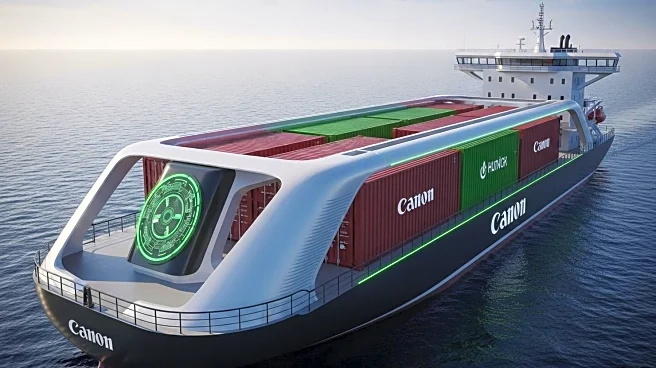What's Happening?
The maritime industry is undergoing a significant fuel transition, with 534 container ships on order that will be able to use alternative fuels upon delivery. These ships represent 53% of ships on order and 77% of the TEU capacity. LNG remains the most popular alternative fuel, accounting for two-thirds of all alternatively-fuelled ships on order. Methanol-fuelled ships represent 31% of the total. The shift towards alternative fuels is particularly pronounced for larger ships, with 81% of ships with 8,000 TEU capacity or more being alternatively-fuelled.
Why It's Important?
The transition to alternative fuels in the maritime industry is crucial for reducing carbon emissions and promoting sustainability. As the industry moves towards low-carbon operations, the demand for alternative fuels like LNG and methanol is expected to grow. This shift has significant implications for shipping companies, as it requires investment in new technologies and infrastructure. The prevalence of alternatively-fuelled ships among larger vessels highlights the role of major shipping companies in driving this transition, potentially influencing global shipping practices and environmental policies.
What's Next?
The continued growth of alternatively-fuelled ships suggests a future where a significant portion of the container fleet operates on low-carbon fuels. As the availability of alternative fuels increases, shipping companies may invest further in technologies that support sustainable operations. The development of biofuels and e-fuels could enhance the viability of LNG as a low-carbon option, potentially leading to broader adoption across the industry.
Beyond the Headlines
The shift towards alternative fuels raises questions about the availability and cost of these fuels, as well as the need for regulatory frameworks to ensure safe and efficient operations. The transition also highlights the importance of collaboration between shipping companies, fuel providers, and policymakers to achieve sustainability goals.











